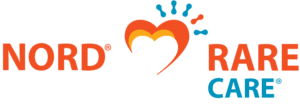Última actualización:
April 29, 2021
Años publicados: 1986, 1993, 1997, 2005, 2009
Acanthocheilonemiasis is a rare tropical infectious disease caused by a parasite known as Acanthocheilonema perstans, which belongs to a group of parasitic diseases known as filarial diseases (nematode). This parasite is found, for the most part, in Africa. Symptoms of infection may include red, itchy skin (pruritis), abdominal and chest pain, muscular pain (myalgia), and areas of localized swelling (edema). In addition, the liver and spleen may become abnormally enlarged (hepatosplenomegaly). Laboratory testing may also reveal abnormally elevated levels of certain specialized white blood cells (eosinophilia). The parasite is transmitted through the bite of small flies (A. coliroides).
Initially people with Acanthocheilonemiasis may have no symptoms. Symptoms occur more frequently in people who visit the areas where this parasite is common (endemic), than in people who are native to that area. One common laboratory finding, in people who have recently returned from infected areas, is abnormally high levels of specialized white blood cells (eosinophilia). Generally there are no symptoms associated with the laboratory finding.
When symptoms appear they may include itchy skin (pruritis), abdominal pain, chest pain, muscle pains (myalgias), and/or areas of swelling under the skin (subcutaneous). Examination by a physician may reveal an abnormally enlarged liver and spleen (hepatosplenomegaly), and abnormally high levels of granular white blood cells (eosinophilia). The adult worm (nematode) may lodge in the tissues of the abdomen and chest causing inflammation and immune reactions. This may result in inflammation of the lining of the lungs (pleuritis) and/or the membranes that surround the heart (pericarditis).
The early or prelarval form (microfilariae) of Acanthocheilonema perstans can be isolated from the blood from patients with Acanthocheilonemiasis. Generally this disease is diagnosed by the examination under a microscope of a thick blood smear taken from the patient.
Acanthocheilonemiasis is a rare infectious disease caused by long «thread-like» worms, Acanthocheilonema perstans, also known as Dipetalonema perstans. The disease is transmitted by a small black insect (midge), called A. Culicoides.
Acanthocheilonema perstans, the parasite that causes Acanthocheilonemiasis is common in central Africa and in some areas of South America. This disorder affects males and females in equal numbers.
Acanthocheilonemiasis is treated by means of the administration of antifilarial drugs, some of which are newer than others. Ivermectin or diethyl-carbamazine (DEC) are frequently prescribed. Occasionally, surgery may be required to remove large adult worms. Mild cases of acanthocheilonemiasis do not require treatment.
Information on current clinical trials is posted on the Internet at www.clinicaltrials.gov. All studies receiving U.S. government funding, and some supported by private industry, are posted on this government web site.
For information about clinical trials being conducted at the NIH Clinical Center in Bethesda, MD, contact the NIH Patient Recruitment Office:
Tollfree: (800) 411-1222
TTY: (866) 411-1010
Email: [email protected]
For information about clinical trials sponsored by private sources, contact:
www.centerwatch.com
Research on tropical diseases is ongoing. The development of a vaccine is also being investigated. For more information on these disorders contact the World Health Organization (WHO) listed in the Resources section below.
TEXTBOOKS
Stein JH, Hutton JJ, Kohler PO, et al., eds. Internal Medicine. 4th ed. Mosby-Yearbook, Inc., St. Louis, MO. 1994:1966; 2280.
JOURNAL ARTICLES
Huynh T, Thean J, Maini R. Dipetalonema reconditum in the human eye. Br J Ophthalmol. 2001;85:1391-92.
Tripathi RP, Tripathi R, Bhaduri AP, et al. Antifilarial activity of some 2H-1-benzopyran-2-ones (coumarins). Acta Trop. 2000;76:101-06.
Zahner H, Schares G. Experimental chemotherapy of filariasis: comparative evaluation of the efficacy of filaricidal compounds in Mastomys coucha infected with Litomosoides carinii, Acanthocheilonema vitae, Brugia malaya and B. pahangi. Acta Trop. 1993;52:221-66.

NORD y la Fundación MedicAlert se han asociado en un nuevo programa para brindar protección a pacientes con enfermedades raras en situaciones de emergencia.
Aprende más https://rarediseases.org/patient-assistance-programs/medicalert-assistance-program/Asegurarse de que los pacientes y los cuidadores estén equipados con las herramientas que necesitan para vivir su mejor vida mientras manejan su condición rara es una parte vital de la misión de NORD.
Aprende más https://rarediseases.org/patient-assistance-programs/rare-disease-educational-support/Este programa de asistencia, primero en su tipo, está diseñado para los cuidadores de un niño o adulto diagnosticado con un trastorno raro.
Aprende más https://rarediseases.org/patient-assistance-programs/caregiver-respite/The information provided on this page is for informational purposes only. The National Organization for Rare Disorders (NORD) does not endorse the information presented. The content has been gathered in partnership with the MONDO Disease Ontology. Please consult with a healthcare professional for medical advice and treatment.
The Genetic and Rare Diseases Information Center (GARD) has information and resources for patients, caregivers, and families that may be helpful before and after diagnosis of this condition. GARD is a program of the National Center for Advancing Translational Sciences (NCATS), part of the National Institutes of Health (NIH).
View report